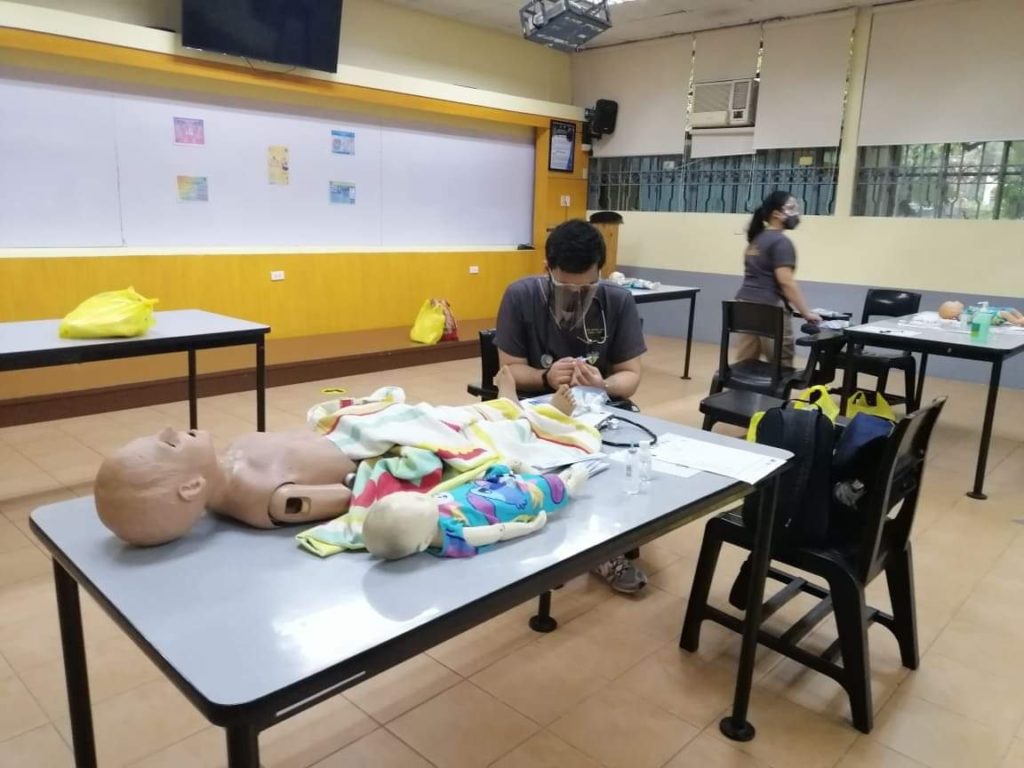UST and NU begin limited face-to-face classes for health-related programs
After securing government approval, some health programs of the University of Santo Tomas Faculty (UST) and the National University (NU) have resumed limited face-to-face classes
According to the Varsitarian, Vice Rector for Academic Affairs Prof. Cheryl Peralta, UST released guidelines for the limited face-to-face classes for the observance of minimum health protocols inside the classrooms. This comes after the Commission on Higher Education (CHED), the Inter-Agency Task Force on Emerging Infectious Disease (IATF), and Manila Mayor Francisco “Isko” Moreno Domagoso all approved UST's resumption of limited face-to-face classes.
READ: The University releases the following guidelines as clinical clerks of the UST Faculty of Medicine and Surgery are set to start limited face-to-face classes tomorrow, June 9. pic.twitter.com/uTxseQxoqv
— The Varsitarian (@varsitarianust) June 8, 2021
These guidelines cover policies that ensure compliance with minimum health safety protocols from entering the university, while inside the premises, and upon leaving.
CHED Chairman Prospero De Vera III said UST has passed the health standards pertaining to stringent retrofitting of facilities as set by CHED and the Department of Health (DOH) for the resumption of face-to-face classes. Aside from the Faculty of Medicine and Surgery, UST's other health allied programs were also given the green light to resume face-to-face classes such as the College of Nursing and the Medical Technology program under the College of Pharmacy.
UST initially planned to conduct limited face-to-face classes in March, but was delayed after COVID-19 cases surged during that time.

But Noel Bernard Cabe, an incoming fourth-year college student majoring in Medical Technology at UST, said he has reservations on returning to face-to-face classes.
“It increases my chances of exposing myself and getting sick, even if this is part of my line of work, the drawbacks outweigh the benefits; second, it feels like another unnecessary expense because schools don’t seem like they’re absolutely prepared for this setup. I’m getting tired of the experimental curriculum that our batch goes through,” Cabe said in an online interview.
Moral support
NU has also started limited face-to-face classes for health allied programs after Moreno approved the request of the institution on June 1.
On June 4, the NU submitted its plans on complying with the health protocols. Moreno encouraged the students to have everyone inoculated during the vaccination for A4 category groups that started on June 7
The mayor also vowed “moral support” to NU in case someone tests positive for COVID-19 on the campus.
“We made a commitment to [the] medical schools and students kasi ang gusto ko mapapanatag yung mga magulang ng mga estudyanteng yun na yung kanilang mga anak at yung environment kung saan sila mag aaral ng face to face, na medical students, ay maproteksyunan,” Moreno said on his Facebook page in a live broadcast.
Acquisition risk
According to The Asian Development Bank (ADB), authorities should consider reopening schools as remote education appears less effective than face-to-face classes, translating to learning losses, stunting future job opportunities and income prospects.
“When young students miss out on opportunities to learn these skills, the total skill level that they acquire in their lifestyle is at risk of being lower,” ADB chief economist Yasuyuki Sawada said during a joint seminar with the International Monetary Fund on Tuesday, June 8.
ADB said medical and health allied programs are in need of hands-on activities, requiring students to be physically present in conducting medical procedures such as surgery and examining medical experiments.
The DOH and CHED implemented a joint memorandum circular for selected health degree programs regarded as vital in providing additional manpower support in the health system during the pandemic, and this covers Medicine, Nursing, Medical Technology/Medical Laboratory Science, Physical Therapy, Midwifery, and Public Health.
Calibrated and gradual
Asst. Prof. Alvin Rey F. Flores, a public health expert, stressed these programs requires “skill-based programs that have interaction with patients” for actual performances of laboratories, exercises, or tests.
“But because of the insidious nature of the virus, we have to resume this in a calibrated and gradual manner especially for the feasibility of the students in regards to their hands-on exercises,” Reyes told PhilSTAR L!fe in an online interview.


